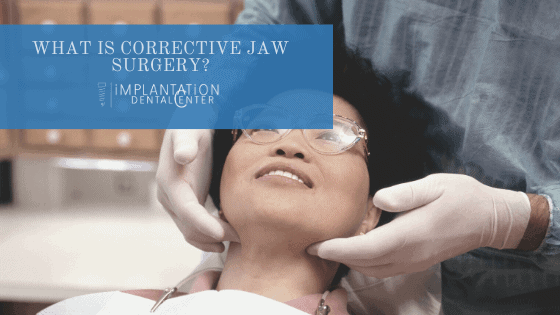Orthognathic surgery, or corrective jaw surgery, a variety of both minor and major dental and skeletal irregularities. These surgical corrections can include misalignments of the jaw and teeth. By having this surgery, a patient can see an improvement in breathing, chewing, and speaking. All of these things are crucial for a full, healthy life.
This surgery corrects functional problems of the mouth and jaw, but it can result in a dramatically different, in many ways enhanced, physical appearance. Despite those physical enhancements, this surgery is not intended to be a cosmetic procedure.
There are a number of indicators that jaw surgery might be a good idea for you. These are a few signs that you may benefit from the surgery:
- Difficulty swallowing
- Difficulty with chewing and biting food
- Chronic headaches, jaw, or joint pain (TMJ)
- Chronic mouth breathing
- Excessive wear and tear of the teeth
- Open bite (meaning the space between the upper and lower teeth when the mouth is closed)
- A facial appearance that is unbalanced from the front or side
- Birth defects
- Facial injury
- Receding of the lower jaw and chin
- Protruding jaw
- Inability to make lips meet without straining or difficulty
- Sleep apnea (this is breathing problems during sleep it can include snoring)
Correcting common deformities:
There are a few common deformities that this surgery corrects: protruding lower jaw, open bite, and receding lower jaw or chin.
Protruding lower jaw
This occurs when the bone in the back of the jaw is separated from the front of the jaw. With this surgery, it’s modified so the part of the lower jaw with teeth can be moved back into place for proper alignment.
Open Bite
This occurs when part of the bone in the upper jaw is removed. Then, the upper jaw is secured in place using screws and plates.
Receding lower jaw or chin
With this surgery, the bone in the lower jaw is separated from its base and modified. Then, the part of the lower jaw and the chin are repositioned forward.
All three of these are very common procedures and work to correct painful and inconvenient abnormalities while also improving the patient’s appearance.
The decision to have corrective jaw surgery, as with any other surgery, is a big decision. It’s best to discuss your options with your prosthodontist and orthodontist. They can examine your situation and determine whether or not they need to consult with an oral surgeon. From there, your trusted dental professionals will come up with a solution that best addresses your problem.
You will also need to keep in mind that your recovery period may be longer than you might hope. This is why it’s important to have a team of dental professionals that you trust.
If you’re interested in corrective jaw surgery, schedule a consultative appointment with our office today. We can help you determine whether or not you are a good candidate for the surgery and correct any jaw problems that you are dealing with.




I have a missing tooth in front and all my molars on the bottom left and all but one on the upper write i also broken teeth and need help with paying for a confidence i dont smile i wont have my picture taken and am having a hard time finding a job could you please help me thank you
Nicole padilla
We would need to schedule you for a consultation to assess your unique needs. Please call our office for an appointment, we do work with several providers for financing if that’s a concern.